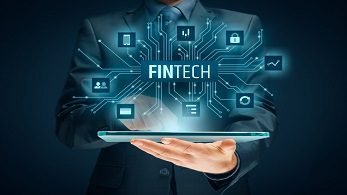Introduction
Many businesses regard blockchain as a fad or still-developing technology years away from widespread implementation. While blockchain, like any other emergent technology, is still in its early stages, it is rapidly gaining traction. While the finance and insurance industries had a clear use case and were early adopters, the way blockchain affects other sectors, particularly education, may surprise you.
The educational ecology is evolving, and classic educational methods are no longer appealing to the next generation. Students are more aware of advancements and seek alternatives, forcing institutions to reconsider their engagement strategies. Several financial technology courses can help you understand the implementation of blockchain in the education sector.
Use Cases of Blockchain in the Education Sector
A financial planning and analysis course will help you crack the code of how blockchain will transform the education space. There are some use cases of blockchain in education. Let us understand these applications:
- Assessment
The existing assessment system has flaws and needs to be revamped. The system is vulnerable to errors and possible fraud. The mobile population of people is increasing, which has brought to a need for a substantial universal database with open access, security, and authenticity so that people can leverage some universal credential as they move to another educational institution, a new job, or a new country — and for refugees who lack documentation.
- Storage and validation of records
All records can be safely and permanently stored, certificates and rewards can be issued confidently, credits can be transferred, and learning achievements can be tracked throughout a lifetime. The college will not be required to divulge transcripts or confirm degrees. The system’s distributed design may validate candidates’ entire academic journey from school to vocational certifications across different institutions and locations. Employers can certify credentials on-demand without going through a time-consuming background investigation.
- Intellectual Property Tracking for Academics
Intellectual property registration and tracking are essential components of any academic institution. Intellectual property generates value, and its utilization might result in costs. To this goal, several central authorities oversee various types of intellectual property. The job of data companies is to validate and certify the frequency of usage of any research or an open educational resource. In contrast, research journals certify that research is new and conducted under rigorous scientific standards — this information is used to determine scientific truth.
This defines the research’s importance and, as a result, the author’s compensation. On the other hand, the existing system includes various intermediaries such as journal publishers, data businesses, professional bodies, and so on. These IP data may be decentralized and maintained without intermediaries thanks to blockchain, and researchers can be paid directly based on citations or usage.
- Learning Analytics
Analytics in the learning environment will become one of the essential areas of blockchain for education in the future, similar to various other industries, having a favorable influence on both the institution and students: Consider a scenario in which every learning activity, including informal learning and informal feedback, is recorded on the blockchain. On learning settings, all assignment test scores will be mapped. The finest Courses by subject might be found across participating locations and universities. Learning would become more interactive, and course reputations would be based on more tangible metrics.
Conclusion
Fintech is one space that is growing exponentially. It has now come up with technologies like blockchain, transforming how businesses are conducted. It is also impacting the education sector and is trying to transform the industry for good. We provide the best courses to help you understand the correlation between blockchain and education and how one can benefit from the other.
You can enroll in our Professional Certificate in Fintech, which will help you understand the nuances of blockchain and how it can transform the educational space.

